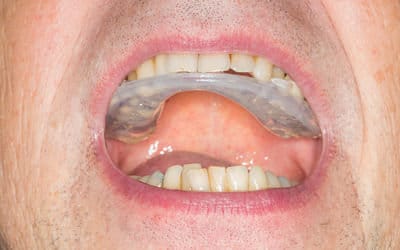Teeth Grinding and Clenching
Teeth grinding and clenching usually happen during sleep. It is also known as “bruxism”. Some people clench during the daytime as well. More than 50% of the population and people of all aged grind or clench their teeth. A lot of people clench or grind for a short period of time, but for some people, this becomes a habit.
What is teeth grinding or clenching?
Grinding: Your lower jaw moves sideways and rubs the upper teeth and makes an unpleasant grinding noise. This happens mostly while you sleep. A grinding noise can be heard by the bedtime partner.
Clenching: This also happens while you sleep. People bite down with excessive force. There may be little or no movement of the jaw. As there is no movement of the jaw, no noise will be heard. If clenching occurs during sleep, your bedtime partner will not hear the sound or realise that you are clenching.
Causes of teeth grinding and clenching:
- Stress and anxiety are the primary reason. There are stressful periods in peoples’ lives, and the clenching may occur temporarily during these periods. Some people may clench and grind for an extended period.
- Lack of sleep and sleep disorders such as sleep apnoea.
- Excessive tiredness or fatigue.
- Depression and chronic pain conditions.
Indications for teeth grinding or clenching:
- Soreness – when you wake up in the morning, your jaw and all teeth will be painful.
- Headaches – early morning headaches after you wake up in the morning.
- Jaw pain or stiffness of the jaw – particularly when you wake in the morning
- Family members hear you grind in your sleep.
- Pain near your ears (temporomandibular joint pain or TMJ pain).
- Clenching your teeth during the daytime when you are stressed or anxious.
- Enlarged jaw muscles.
- Limitation of mouth opening due to jaw pain
- Teeth wearing down.
- Broken teeth.
- Chipped or cracked teeth.
How to stop teeth grinding?
You have to wear a “teeth grinding mouth guard” while you sleep to prevent grinding or clenching. They are also known as a:
- Occlusal splint,
- Bite Splint
- Nightguard
- Sleeping mouth guard.
These appliances will minimise the effects of grinding while you sleep. It will also ease the jaw pain or joint pain.
The night guard needs to be custom made to fit your mouth. Dentists can provide you with this type of mouth splint.
The dentist will examine the mouth, both inside and outside, and advise whether you grind or clench. They will also try to determine the underlying cause of this habit.

If you do grind or clench your teeth, the following process will take place to make a “sleep mouth guard”:
1. If you have a cracked or broken tooth this needs to be fixed. After we fix the broken teeth, we take impressions or moulds of your mouth and sent them to the lab. The lab technician will make a sleep mouth guard to custom fit your mouth. The material is completely different from a sports mouthguard.
2. When you come back to collect the night splint, our dentist will ask you to try it in your mouth and check the fit. They will also give you the care and maintenance instructions.
Teeth grinding in children:
In most cases, children grind their teeth while sleeping. As they grow, the habit disappears. The reasons for grinding include:
- Stress and anxiety
- Particular medical conditions
- Lack of sleep
- Being irritated or tired
- Specific abdominal problems
- Breathing and nose problems
It is common for babies to grind their teeth when their permanent teeth come through the gum.
Children generally don’t need treatment if they clench or grind. However, if the baby teeth are worn out and sensitive, they need dental treatment.
It is very rare for a child to need an occlusal splint to fix the problem. If you have concerns about your child’s clenching or grinding habit or have any other questions, please contact our dentist at Bendigo Dental.